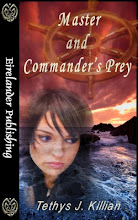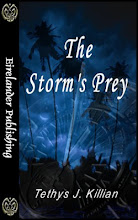by Angela Guillaume
I’m sitting at my desk at 3.45am. It took me an hour to put my baby son to sleep yesterday and after that I managed to sleep 4 hours. 4 full hours! Great! For some reason when I woke up I gravitated toward my computer to write this blog. I thought about this topic – formula writing – because I’m presently reading (or trying to read, during 5 minute breaks) an Amanda Quick book, her latest. I thought of the other Amanda Quick books I have read. Then I thought about some other authors whose books sit on my shelves. I couldn’t help but admit that although I liked these books, lately, I’ve been somewhat bored or disappointed with some of the stories I’ve read.
Why is that?
I thought and thought about it, but one day it dawned on me. It’s the formula. It’s that thing many publishers use to attract readers. A certain type of character. A particular plot. Events that happen routinely at different points in the book. I have come to expect that in formula mainstream romance such as is published by Avon, for instance, there will be a sex scene between the hero and heroine around page 180 – 220 of most of these mass market paperbacks. This will indicate a culmination of the relationship between the two main characters. What follows will be a bit more emphasis on romance (one or two more sex scenes, a little less detailed than the first), and then sh** happens. Yes, then the danger that lurks around the corner finally surfaces, and the hero or heroine (usually the heroine) is put in jeopardy. Or else, something happens to bring the progress of the relationship to a halt and the characters are pulled apart. In any case, a MAJOR EVENT happens, and all hell breaks loose for a while, usually until the hero (in a few cases, the heroine) saves the day.
Entertainment is all about the packaging these days. It is so in music, TV, and movies. And this advertising model includes books. Everything must be categorized and made to “fit” a certain mold so the publisher can go after different readers with different tastes. Few publishers of popular fiction take chances these days, particularly those dishing out the mass market lines. Publishers have different lines – erotic, mainstream, historical, contemporary, fantasy, paranormal, dark, etc. That every line is managed separately is understandable because every type of story attracts a different sort of reader, yet, some publishers go beyond this to state what kind of heroine or hero they want for a particular line. There are professions to give the characters that are acceptable and others that are not. Look at Harlequin, for example. The result of this is often that one feels like one is reading the same book over and over, about the same two characters. The cover, and the title on it, may be different, but one author’s book reads pretty much like the other that succeeds or precedes it. Sometimes, the same feeling is engendered when reading different authors from the same line/publisher. Perhaps this is comforting to some who have come to expect a particular story from a particular author. After a long, hard day one may not be inclined to opt for reading which is unpredictable or displeasing. If one knows what to expect, one won’t be disappointed, I suppose. And in fact, I have been guilty at times of choosing books because I did not want to be surprised. I may have had the flu or come out of a 12-hour workday week so needed to be comforted with an easy going book…nothing too demanding and of course, one with a happy ending...but, this doesn’t have to be the be all and end all of our reading choices, does it? Sometimes we like to think, to ponder, and be challenged. Sometimes, we just want the “other” choice.
The reason publishers give for following this formula is one that finds its core in marketing. Yes, I can grasp this reasoning but… I wonder, have they lost their faith in readers that they won’t take a risk outside their set parameters? Wouldn’t they sell books if they did take a few more risks? What about talent and quality? What happened to thinking outside the proverbial box? Are readers this petty that they only read writing and plots that are formulaic? Sometimes I discover a “different” sort of author and I feel thrilled and excited about their work because it feels like the opposite of formula writing. Someone like Lisa Valdez who, to my chagrin, only produced one book. Or Robin Schone, at least her earlier books. These authors had the guts to do something different, something daring, whether one agrees with it or not. And their publishers decided to take that risk and unleash these works in the market. It’s not rocket science. One takes a risk or one doesn’t. If one does, it may just pay off.
I’m sure that even these unconventional books contain some sort of formula with respect to plot points, pacing, characterization, etc. I think that all books do and all books need to be grounded in technique to make the story coherent and readable. However, this does not mean that certain events have to happen just so in the plot. And that the events or characters in one book should be eerily similar to those in another. Formula writing should make it easy to teach the technique of writing but outside this fact, I think that one should leave room for individual talent. And by this I not only mean the author’s voice, but also the author’s ability to write something compelling, that leaves an indelible mark on a reader. This is hard to achieve when the formula takes precedence over everything else. This, coupled with the hard fact that authors are supposed to dish out a certain number of books a year, quality be damned, does not help matters at all.
Don’t get me wrong. I still love romantic, feel good books. I think they’re essential. I will continue to write them and read them (mainly I gravitate to single title now). This does not mean, however, that I shouldn’t be surprised with a theme that’s out of the ordinary even in a formula book. This would be possible if the publishers were a bit more open to change. I give you one example. A while back I pitched a story to an agent. I made the mistake (well, I was just being honest) of telling her that the tale is set in Italy. That was all it took for her to reject it. She told me, if it wasn’t set in England in certain time periods (Regency, Georgian or Victorian mainly, and some medieval), then, she wouldn’t even bother trying to sell it.
So what is your take on this? Do you ever think of this when you’re reading a book? Do you think publishers have become too restrictive by requiring this from authors? And are they wrongly assuming that readers wouldn’t want something more “adventurous,” rather than being force fed the same recipe release after release?
Angela Guillaume writes contemporary, historical and fantasy/paranormal romance.
Her debut contemporary shorts are...
Mr. & Mrs Foster - Available now at Whiskey Creek Press Torrid
Mile High to Heaven - Available now at Whiskey Creek Press Torrid
Tuesday, October 20, 2009
E=mc2 – The satisfaction, or boredom, of formula writing
Labels:
agent,
Amanda Quick,
characters,
Eirelander Publishing,
formula writing,
Lisa Valdez,
pacing,
plot,
Robin Schone,
Romance
Subscribe to:
Post Comments (Atom)





.jpg)
.jpg)






8 comments:
This is the very reason I don't read category romance. They bore me.
Bigger books with more story and less formula are what hold my attention.
Awesome post. I've found myself tired of a lot of mainstream books especially in certain trends because they all read the same and no one is taking risks in their stories. When I come across a fresh voice or a new take on a story, I completely squee and want to tell the world how awesome said book is.
Plus, I love this:
I wonder, have they lost their faith in readers that they won’t take a risk outside their set parameters? Wouldn’t they sell books if they did take a few more risks?
I wonder the same thing myself sometimes!
Great post, Angela.
I never realized it but you are right about the current formula. It never dawned on me that mainstream fiction tends to follow the same parameters. I think readers should be offered books that are outside the box. They drive the writing economy so they should be the ones to makes those decisions. Of course one can't read what isn't out there so I say publishers should start looking outside the box before they lose readers.
Liena~
Chicki - I hear you about category romance. There are some authors I still read simply because I like their voice or I find the premise intriguing, otherwise, I wouldn't even bother. Sometimes, I like the theme, but wish it would have been fleshed out differently or in a more original way.
Rae - ditto about the fresh voice. Don't you feel just happy and hopeful when you come across an author like that?
Liena - I agree, change has to come from the publishing companies and it's about time they start paying attention and dish out something more interesting that readers can chew on.
Thank you all for your comments!
As far as your story set in Italy, that agent was being dumb. There are people out there who would love to read a book set there.
When I was a kid, I loved to read stories set in other locales. Those books developed my desire to travel.
You are right Sandy...I experienced the same thing. I wonder who determined that if a story is not set in England, nobody will read it? Sounds silly to me...
Hey Angela
Sorry this is so late, but boy, am I glad I read this late but caught it nevertheless!
You have voiced out what a lot of people are thinking, writers and readers alike. Where are the good books? Everything out there seems so much like the same rehashed stuff, kind of like frozen microwave-able meals look different but all taste the same.
I think it's up to publishers to take a bet on a 'different' story. Only then will readers come out of the woodwork and say, that's what we wanted all along!
Great post!
Hugs
Z(Aasiyah/Nolwynn)
Hey Z,
Just caught your comment to my blog, and then I read your blog after that...boy, how right you are. It is a top-down approach thing, and if those who decide don't do it, we're stuck in the mud...
Post a Comment